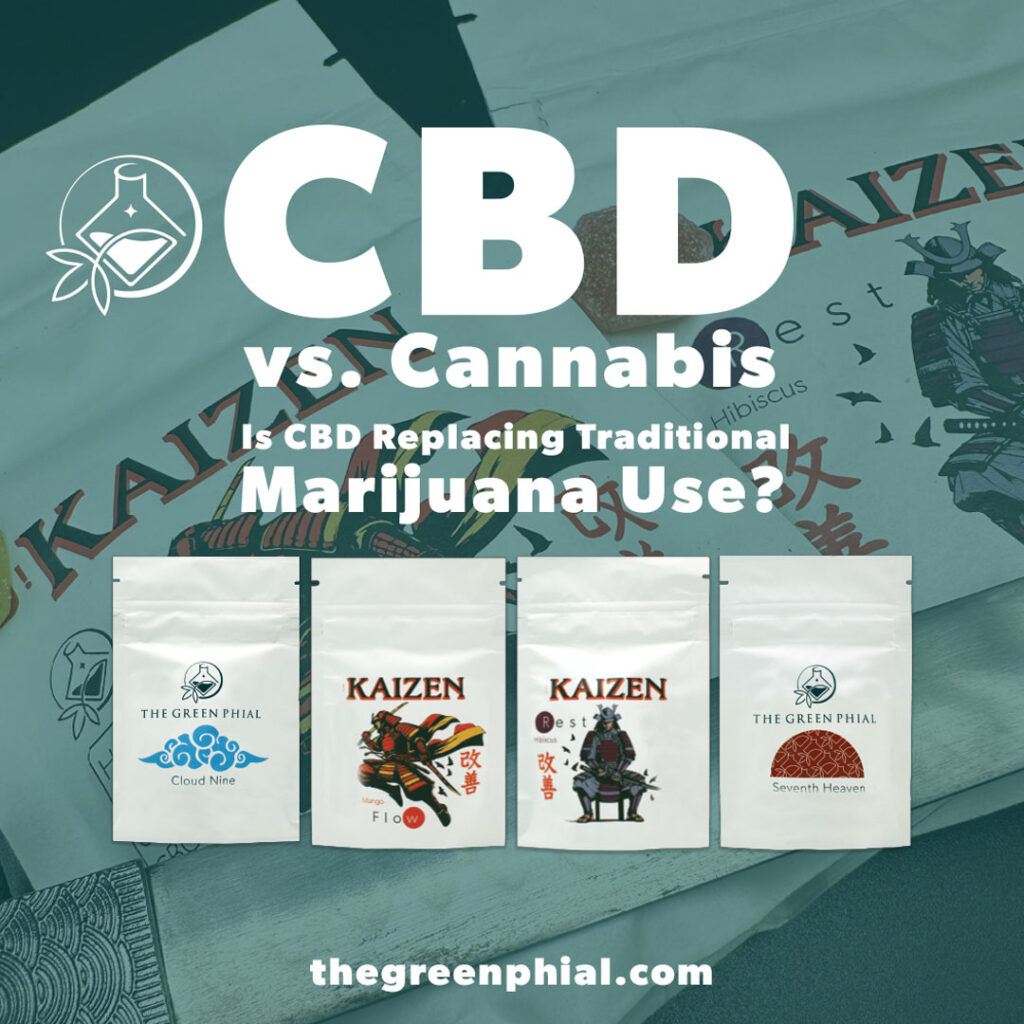CBD vs. Cannabis: Is CBD Replacing Traditional Marijuana Use?
 In recent years, CBD (cannabidiol) has surged in popularity, sparking discussions about whether it could replace traditional cannabis consumption. As more people seek the therapeutic benefits of cannabis without the psychoactive effects of THC, CBD has emerged as a compelling alternative. But is CBD truly replacing cannabis, or is it simply carving out its own unique space in the wellness industry?
In recent years, CBD (cannabidiol) has surged in popularity, sparking discussions about whether it could replace traditional cannabis consumption. As more people seek the therapeutic benefits of cannabis without the psychoactive effects of THC, CBD has emerged as a compelling alternative. But is CBD truly replacing cannabis, or is it simply carving out its own unique space in the wellness industry?
The Rise of CBD as a Cannabis Alternative
CBD, a non-psychoactive compound derived from the hemp plant, has gained widespread acceptance due to its potential therapeutic properties. Unlike THC (tetrahydrocannabinol), the primary psychoactive component of marijuana, CBD does not induce a “high.” This makes it a more accessible option for individuals seeking relief from anxiety, pain, inflammation, and sleep disorders without the mind-altering effects of THC.
With the legalization of hemp-derived CBD in the U.S. through the 2018 Farm Bill, the market has expanded significantly. Today, CBD products come in various forms, including oils, gummies, topicals, and even beverages, allowing consumers to integrate them seamlessly into their daily routines.
Why Some Are Choosing CBD Over Traditional Cannabis
Several factors contribute to the shift from traditional marijuana to CBD products:
- Legal Accessibility – While marijuana remains illegal in many states, hemp-derived CBD is federally legal, making it easier to obtain.
- No Psychoactive Effects – CBD offers relaxation and therapeutic benefits without impairing cognitive function, making it a preferred choice for professionals, athletes, and older adults.
- Fewer Side Effects – Some users experience anxiety or paranoia with high-THC cannabis, whereas CBD is generally well-tolerated with minimal side effects.
- Workplace and Drug Testing Concerns – Since CBD products contain little to no THC (depending on the formulation), they pose less risk for individuals subject to drug testing.
- Growing Scientific Support – Studies suggest CBD may help with conditions like chronic pain, epilepsy, anxiety, and inflammation, further validating its use as a cannabis alternative.
Can CBD Fully Replace Cannabis?
While CBD provides a viable alternative for many, it cannot completely replace cannabis, especially for those who seek the full-spectrum effects of THC. Cannabis offers a broad range of cannabinoids, terpenes, and flavonoids that work together in what is known as the “entourage effect.” This synergy enhances the therapeutic potential of cannabis, which some users prefer over CBD alone.
Additionally, for medical marijuana patients who rely on THC for symptom relief—such as those with severe pain, nausea, or appetite loss—CBD alone may not be sufficient. However, for those looking to reduce THC consumption or transition away from psychoactive effects, CBD provides an effective middle ground.
The Future of CBD and Cannabis
As research continues, the role of CBD in the cannabis industry will likely evolve. The growing popularity of CBD does not necessarily signal the end of traditional cannabis use, but rather a diversification of options for consumers. More people are discovering that they can enjoy the benefits of cannabinoids without experiencing intoxication, making CBD an attractive alternative for wellness-focused lifestyles.
Whether CBD will fully replace cannabis remains to be seen. However, its rise signals a shift in how people approach plant-based wellness, offering a legal, accessible, and versatile option for those seeking natural relief.
Final Thoughts
CBD is not necessarily replacing cannabis, but it is undoubtedly reshaping the industry. As more people explore the potential of this non-intoxicating compound, the demand for high-quality CBD products will continue to rise. Whether you are a cannabis enthusiast looking to moderate THC intake or someone new to plant-based wellness, CBD offers an intriguing alternative with its own unique benefits.
Are you considering switching from cannabis to CBD? Share your thoughts and experiences in the comments below!
